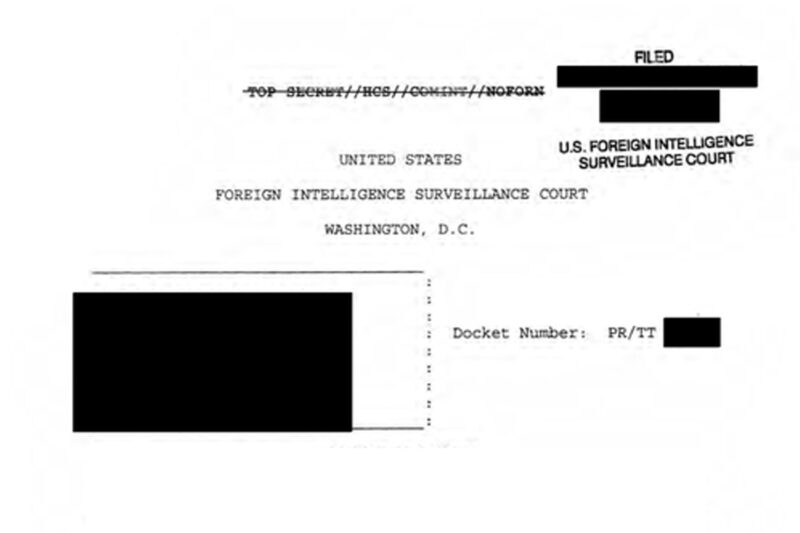
There are still many questions to be answered about Yahoo’s secret scanning of all of its customers’ incoming emails under a mysterious government order.
Anonymous officials have revealed that the government used an individualized court order issued by the Foreign Intelligence Surveillance Court (FISC). But that sweeping demand and the legal interpretations it was based on remain secret — and they are only one small part of a much larger collection of hidden rulings on all sorts of government surveillance activities that affect the privacy rights of Americans.
That’s why today, the ACLU — with the help of Yale Law School’s Media Freedom and Information Access Clinic — filed a motion with the FISC asking the court to release all of its opinions containing “novel or significant interpretations” of law issued between 9/11 and the passage of the USA Freedom Act in June 2015.
The USA Freedom Act ended the NSA’s mass phone records collection program, and it also required the government to make significant FISC opinions public. Unfortunately, the government maintains that its obligation to release such opinions does not apply to secret court rulings that predate the USA Freedom Act. More broadly, it has refused to recognize the public’s First Amendment right to examine significant FISC opinions interpreting our surveillance laws.
These court rulings are essential for the public to understand how federal laws are being construed and implemented. They also show how constitutional protections for personal privacy and expressive activities are being enforced by the courts. In other words, access to these opinions is necessary for the public to properly oversee their government.
Based on documents and media reports released in the past few years following the revelations by Edward Snowden, it appears that in addition to authorizing bulk searches of Yahoo emails, the FISC’s secret rulings address a range of novel surveillance activities, including:
- The government’s use of malware, which it calls “Network Investigative Techniques”
- The government’s efforts to compel technology companies to weaken or circumvent their own encryption protocols
- The government’s efforts to compel technology companies to disclose their source code so that it can identify vulnerabilities
- The government’s use of “cybersignatures” to search through internet communications for evidence of computer intrusions
- The government’s use of stingray cell-phone tracking devices under the Foreign Intelligence Surveillance Act (FISA)
- The government’s warrantless surveillance of Americans under FISA Section 702 — a controversial authority scheduled to expire in December 2017
- The bulk collection of financial records by the CIA and FBI under Section 215 of the Patriot Act
(The ACLU has compiled a longer list of undisclosed FISC opinions, which is included with today’s motion.)
This is not the first time we have sought important legal opinions in the FISC. We’ve been fighting for years to gain access to a similar but smaller set of rulings, and we previously won disclosure of a FISC opinion addressing the First Amendment and spying under Section 215 of the Patriot Act.
We are seeking these opinions now because — as the new Yahoo revelations underscore — it simply isn’t possible to understand the government’s claimed authority to conduct surveillance without these judicial rulings. Congress recognized the importance of transparency in the USA Freedom Act when it required that FISC opinions be made public, but the government has refused to accept that the need for transparency extends to the many foundational FISC opinions that predate the law and remain hidden.
It is now time for the FISC to make clear that the Constitution leaves no room for secret law — even in a court that often operates in the shadows.
Stay informed
Sign up to be the first to hear about how to take action.
By completing this form, I agree to receive occasional emails per the terms of the ACLU's privacy statement.
By completing this form, I agree to receive occasional emails per the terms of the ACLU's privacy statement.

